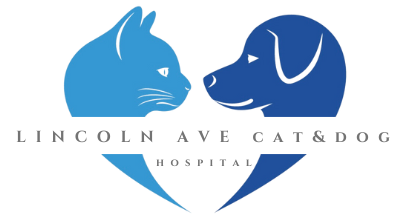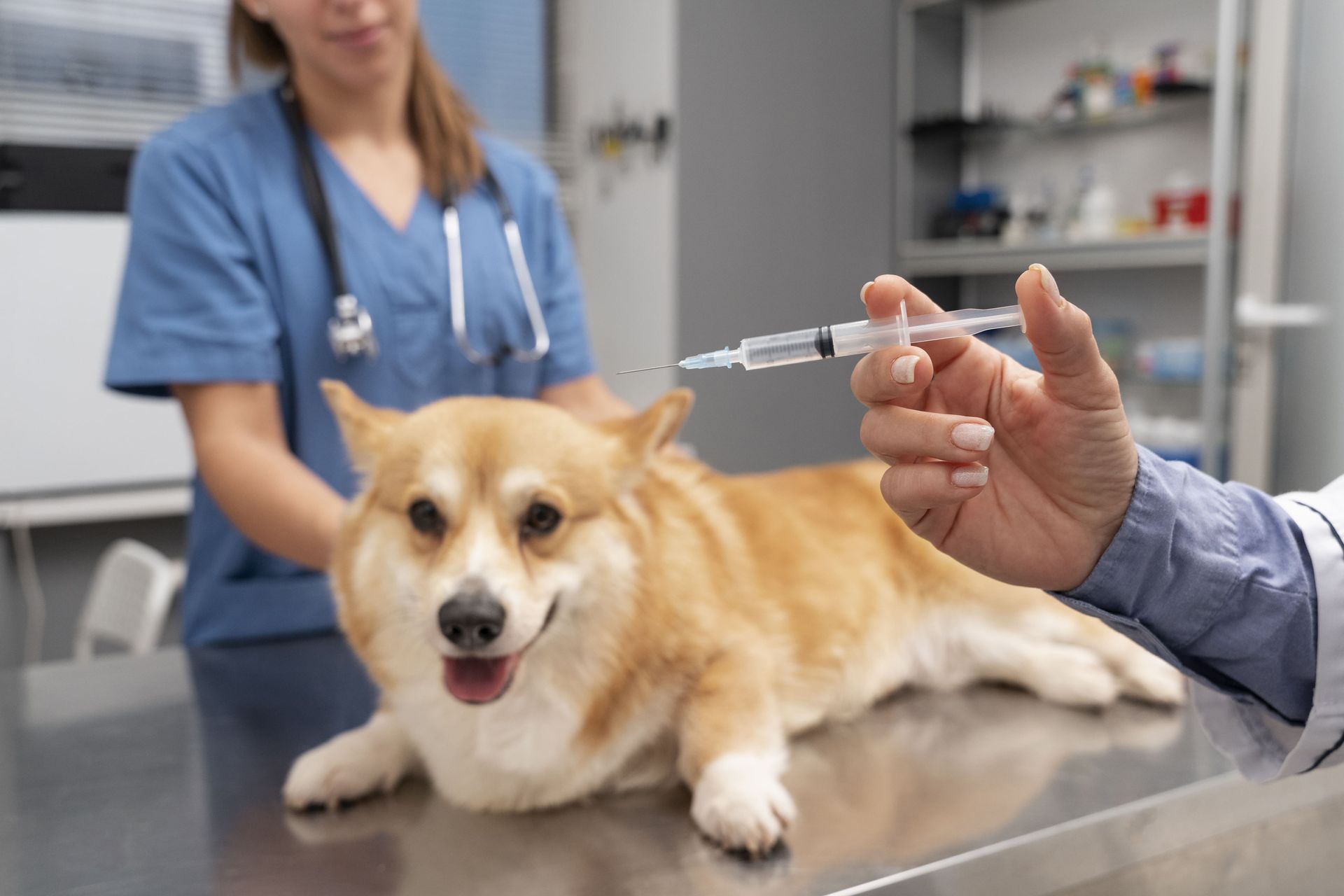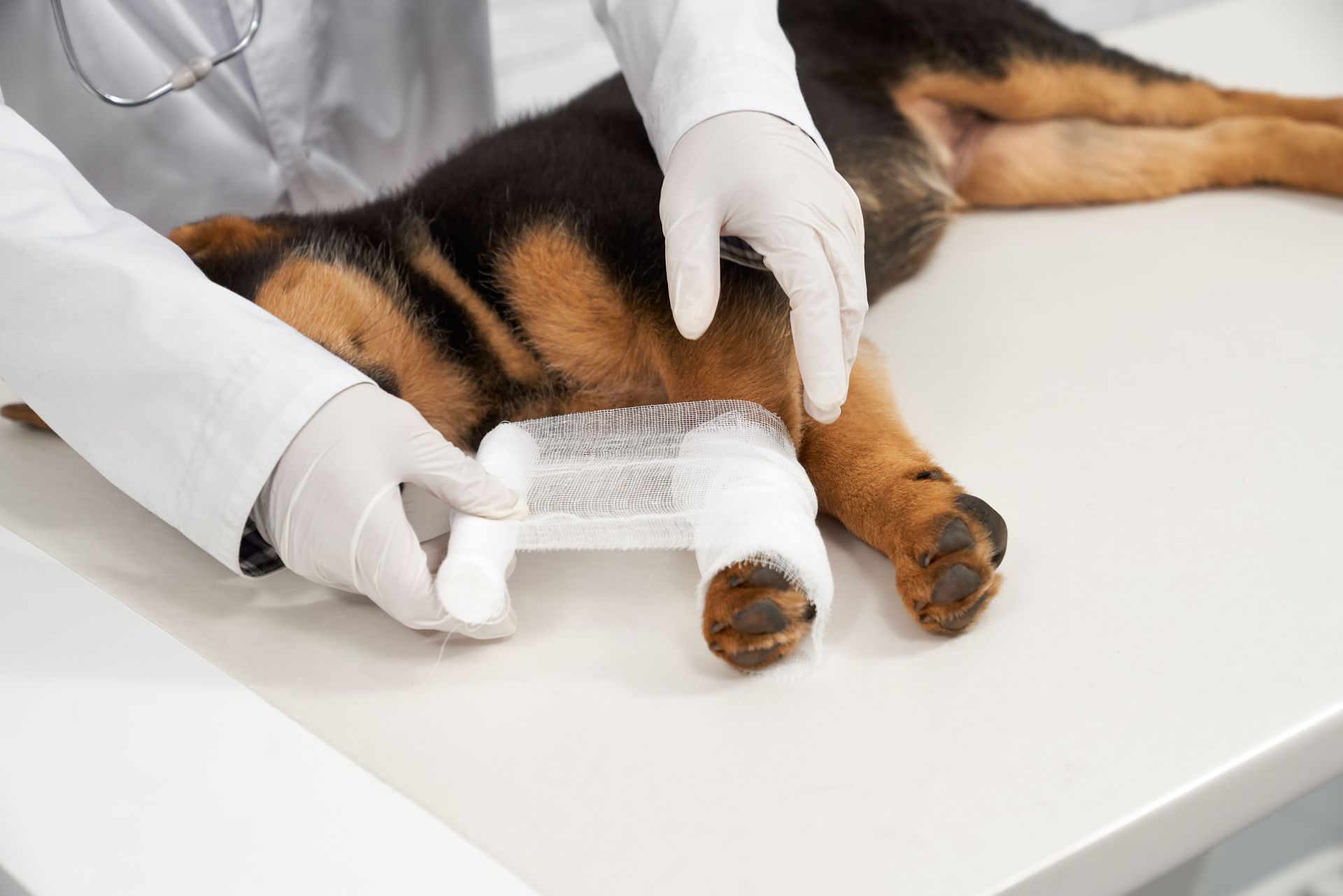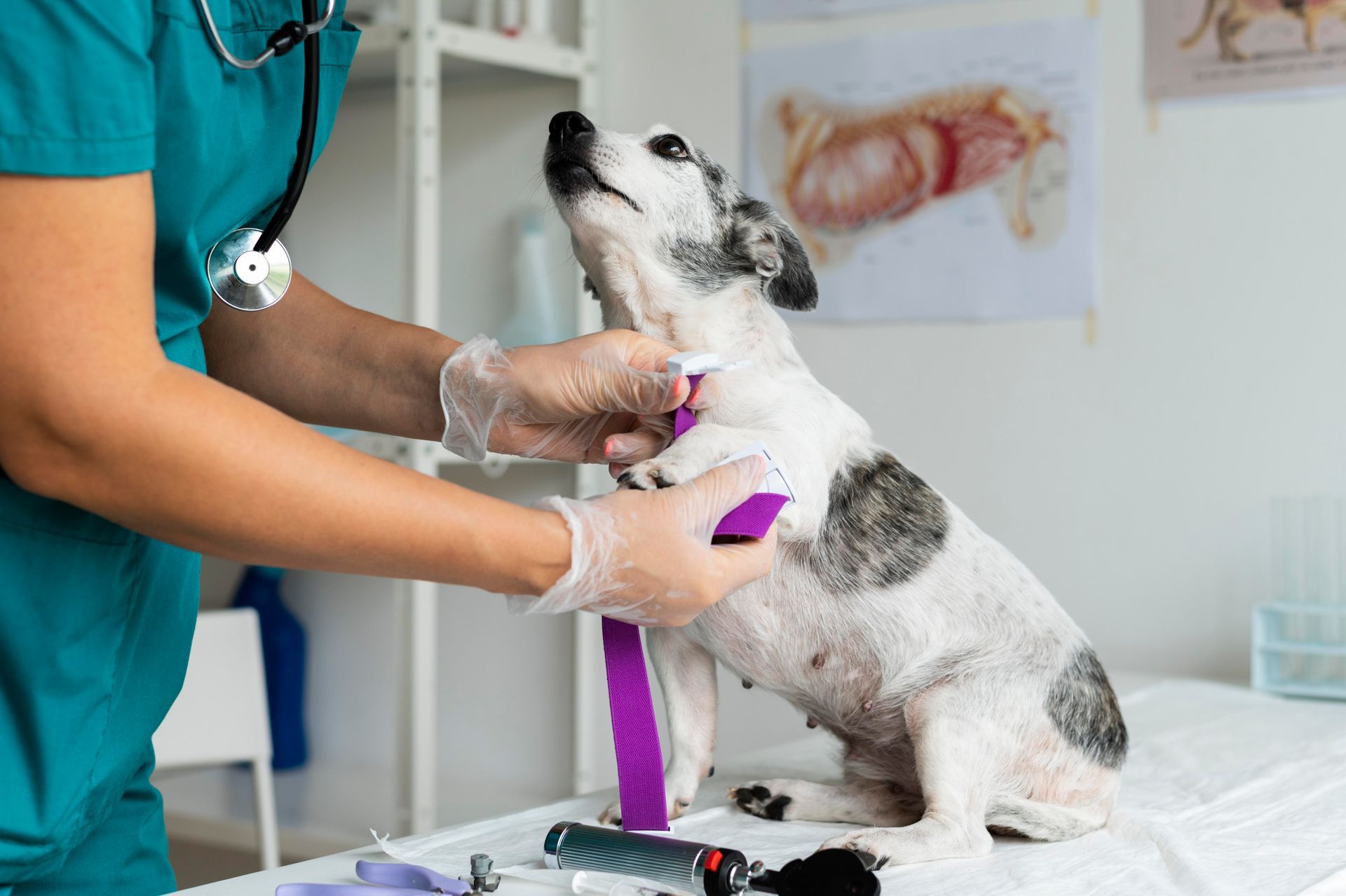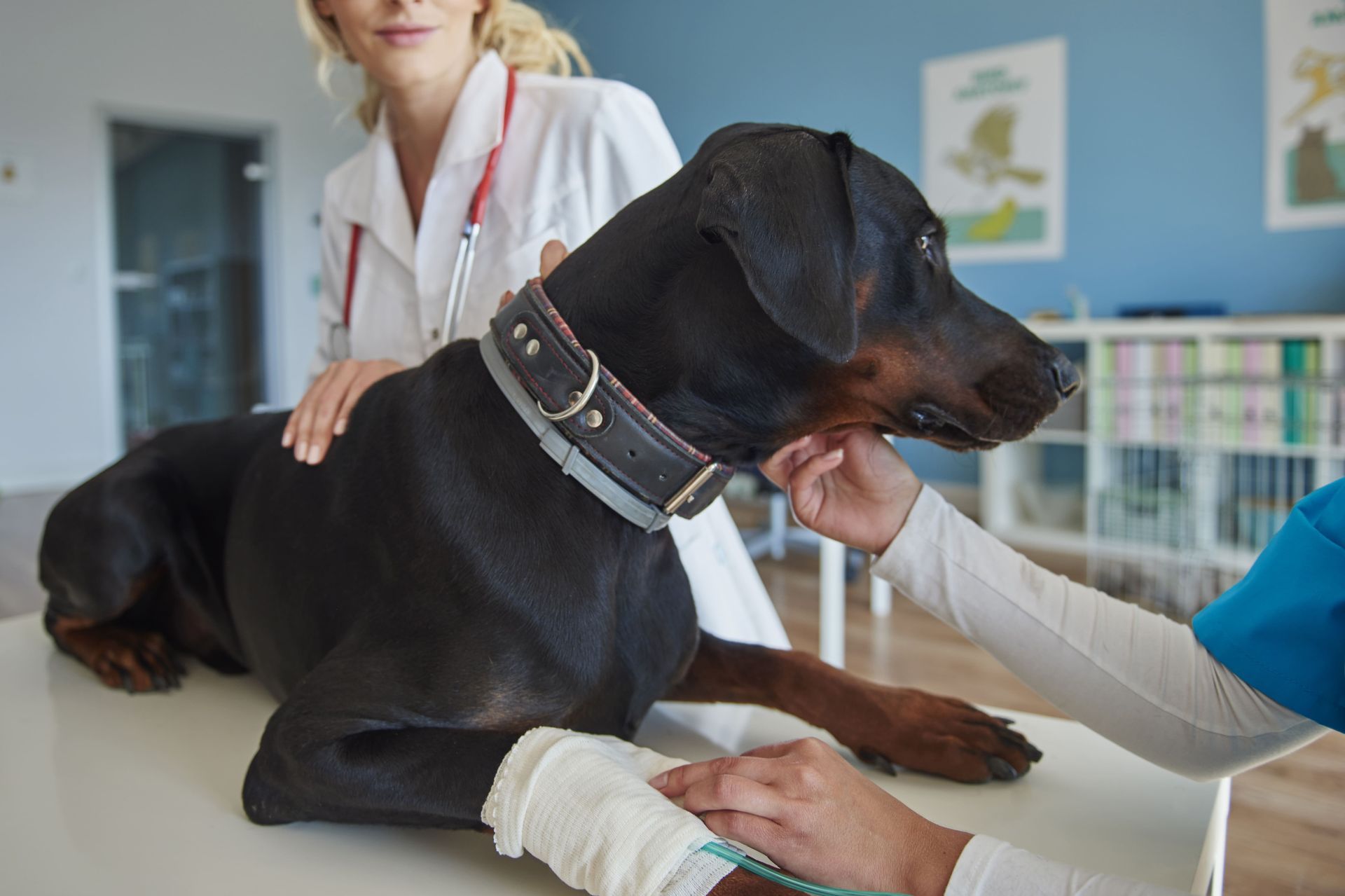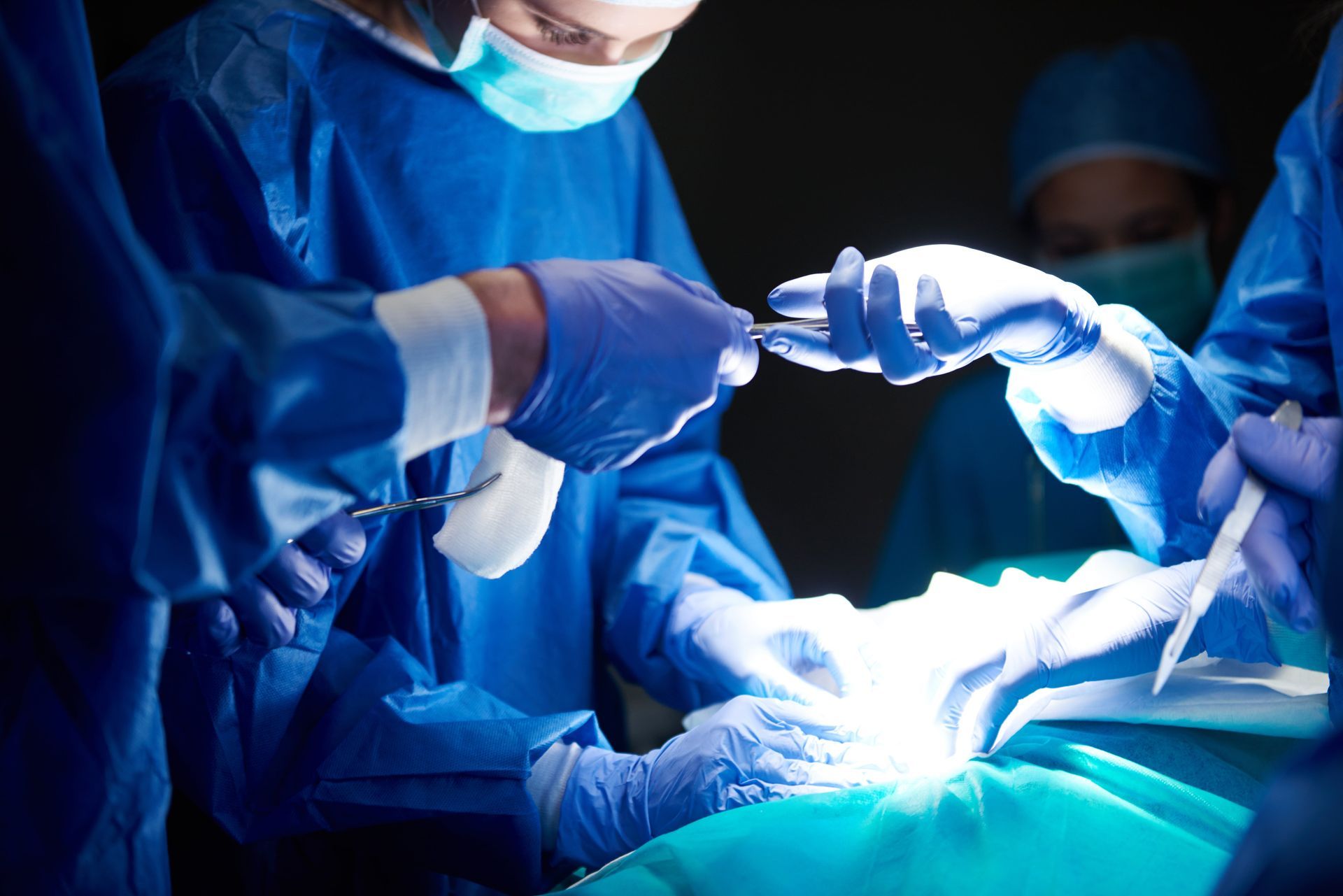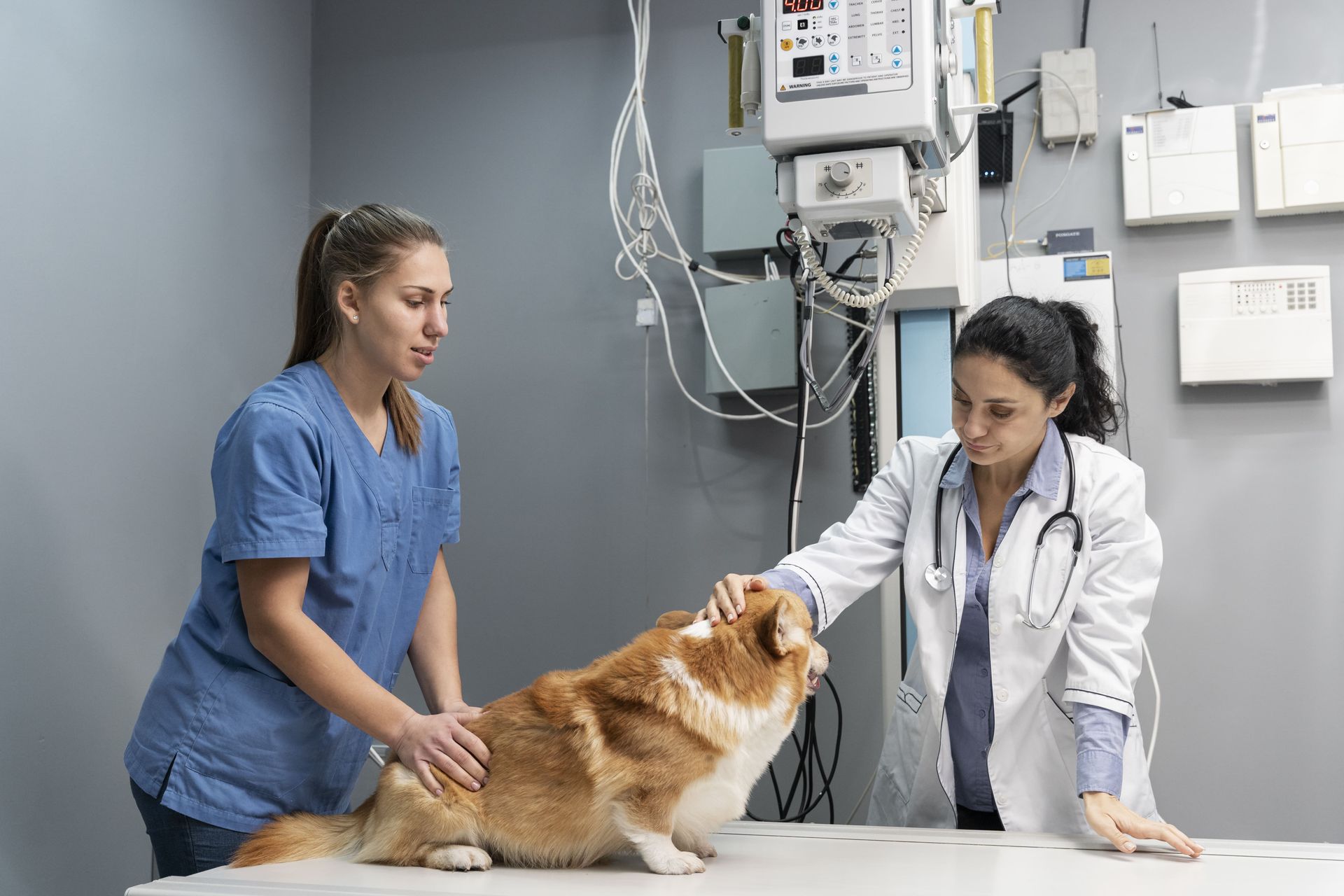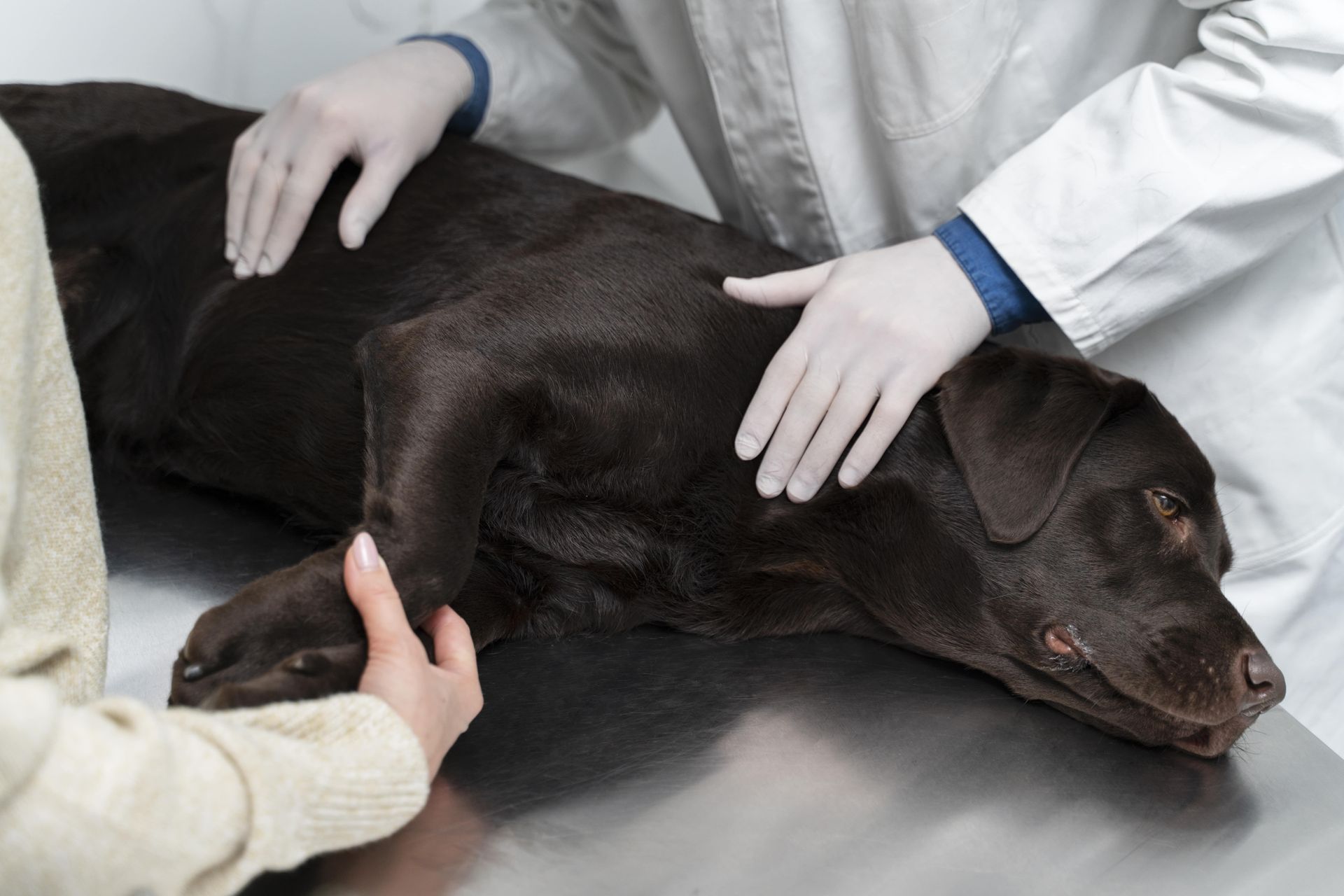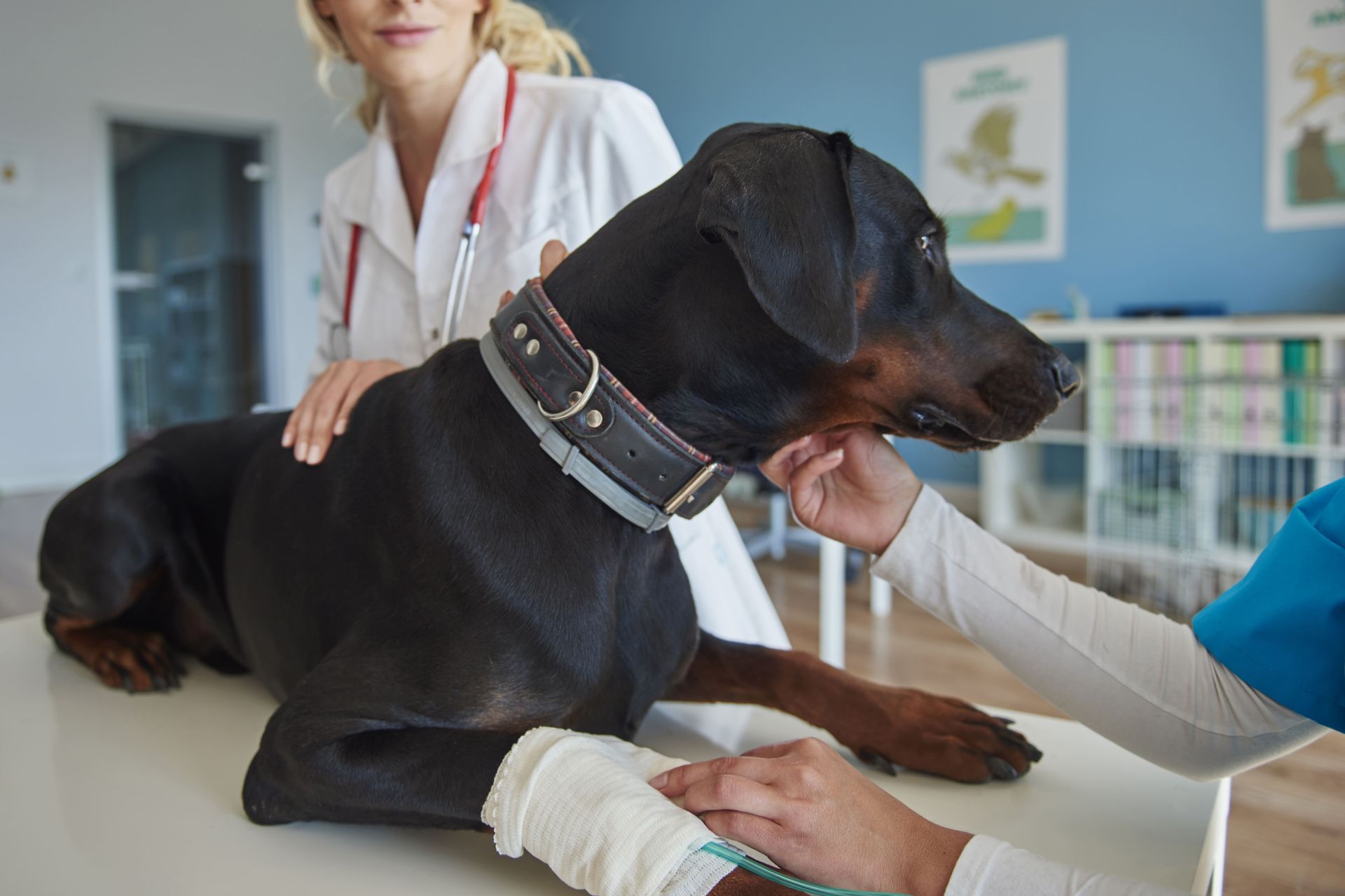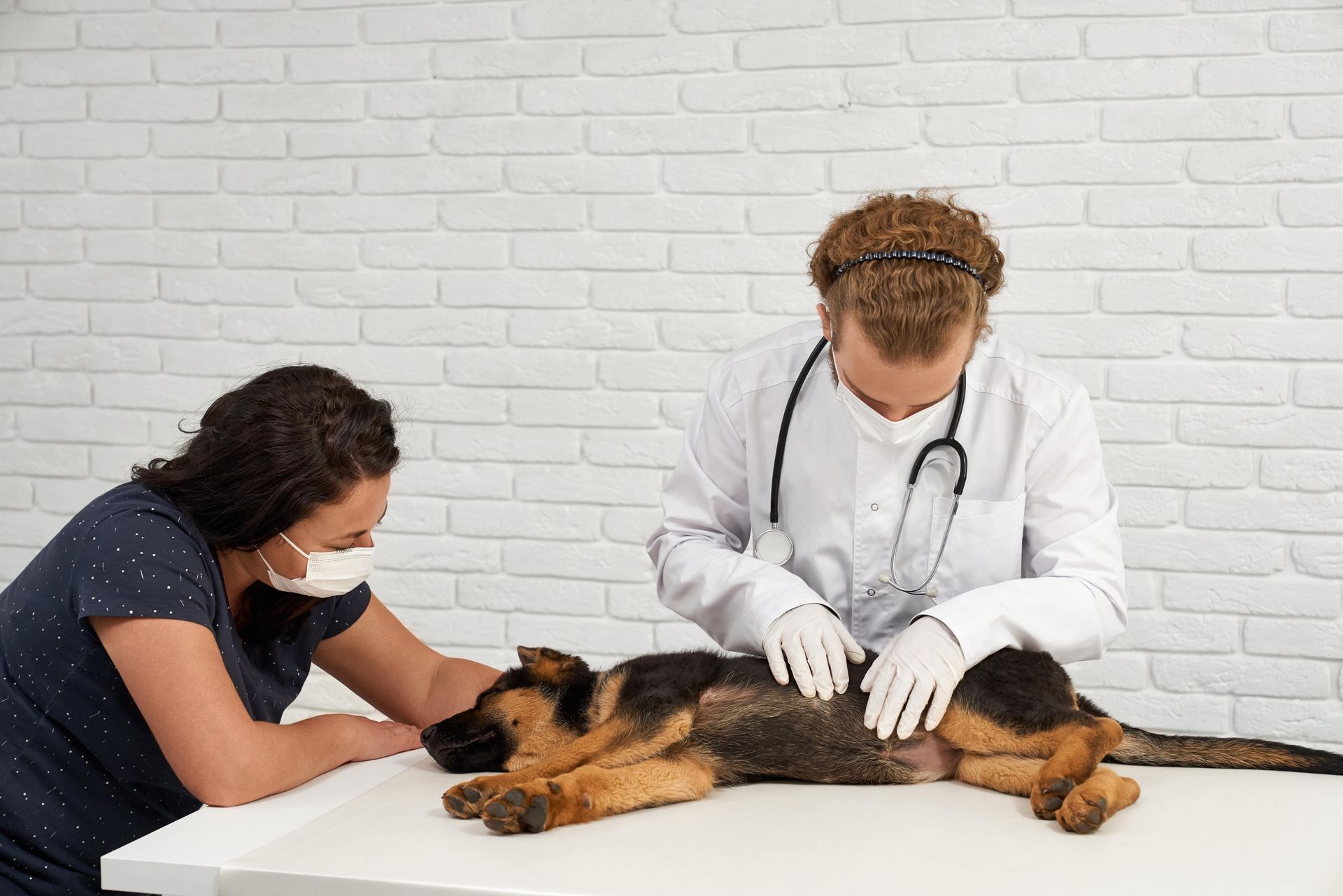Swift Emergency Surgery for Pets During Business Hours at LACDH
Emergencies can strike suddenly, and when they do, pets usually require prompt attention to avoid severe complications. Emergency surgery for pets
guarantees that conditions such as traumatic injury, urinary obstruction, or acute internal issues are addressed before they can cause major complications, minimize pain, and enhance recovery. Having the assurance that immediate surgical intervention is provided can be a matter of life and death for both pets and their owners, making potentially lethal situations into manageable, treatable events.
We know that these situations are stressful, emotional, and downright terrifying. We aim to provide swift intervention so pets can receive quick surgical intervention, reducing pain and complications, and enhancing outcomes. Emergency pet surgery is about regaining comfort, mobility, and the quality of life for pets and providing pet parents peace of mind in knowing their furry friends are capable paws.
Emergencies can happen in a heartbeat. A dog might swallow a foreign object, a cat could develop a sudden bladder blockage, or an accident could leave a pet with a broken limb. Without prompt attention, these issues can escalate quickly. This blog post breaks down prevalent emergencies, the role of emergency surgery for pets, what to anticipate in an urgent visit, and how Lincoln Avenue Cat & Dog Hospital assists pets in recovery, all while offering helpful advice for pet owners to avoid emergencies when possible.
Knowing Emergency Surgery for Pets
Emergency surgery for pets is exactly what it sounds like: surgical procedures done in an emergency to treat life-threatening or mobility-compromising conditions. Unlike scheduled surgeries, these operations require quick decision-making, immediate diagnostic testing, and fast preparations. The objective is to stabilize the pet, treat the underlying condition, and avert additional complications.
In most situations, time is of the essence. Waiting to treat conditions such as gastrointestinal obstructions, traumatic injury, or urinary obstruction can increase pain, infection risk, and long-term health implications. Although not all emergencies require surgery, access to a hospital that operates on a same-day basis ensures pets don’t have to wait for the care. If you have access to emergency surgery for pets, owners don’t have to worry about searching for an after-hours clinic.
Pet emergency surgery is a coordinated effort. From diagnosis and triage to surgery and post-operative care, the process demands efficiency, expertise, and empathetic handling. That's why selecting a facility that prioritizes timely, professional intervention makes a real difference in recovery times and results.
Typical Emergency Conditions That May Require Surgery
A number of scenarios often necessitate emergency surgery for pets. Let's take a closer examination of some of the most frequent emergencies in vet clinics:
1. Gastrointestinal Obstructions
Dogs and cats love to chew, swallow, and sometimes eat things they shouldn't, such as toys, clothing, or household objects. When a foreign body obstructs the gastrointestinal tract, it may cause acute vomiting, dehydration, and abdominal pain as well as rupture of the intestines. Emergency surgery for pets is usually necessary to remove the blockage in a safe manner.
2. Traumatic Injuries
Accidents do happen. Pets may be struck by vehicles, fall off buildings, or fight with other pets. Injuries from these accidents can include fractures, internal bleeding, or severe lacerations. Surgery might be needed to fix fractured bones, stem bleeding, or to cut out injured tissue to enable normal function.
3. Bladder Stones and Urinary Blockages
Male cats and certain dogs are susceptible to bladder stones that can clog the urethra. A total blockage is an emergency since it is a hindrance to urination and can easily cause kidney failure within a short period of time. Emergency surgery for pets is usually the quickest method of unblocking and saving the life of the pet.
4. Pyometra
This potentially fatal uterine infection in unspayed (one who has not had her reproductive organs (ovaries and uterus) surgically removed) female animals can develop quickly. Clinical signs are lethargy, vomiting, fever, and a distended abdomen. The definitive treatment is generally surgical removal of the affected uterus.
5. Gastric Dilatation-Volvulus (Bloat)
Deep-chested, big dogs are most susceptible to bloat, a condition where the stomach twists and cuts off the blood supply. Signs are an inflated abdomen, retching without vomiting, and frantic restlessness. Only emergency surgery for pets can be life-saving in this situation.
How Lincoln Avenue Cat & Dog Hospital Approaches Emergency Surgery for Pets
At Lincoln Avenue Cat & Dog Hospital, we are fully aware that emergencies cannot wait. Our process of emergency surgery for pets during business hours is designed to be swift, comprehensive, and compassionate:
a) Fast Assessment and Triage
The minute you arrive with your pet, our staff assesses the seriousness of the condition. Critical symptoms such as difficulty breathing, acute pain, or collapse are handled right away, allowing the pet to be given priority treatment.
b) Sophisticated Diagnostic Equipment
We employ the use of X-rays, ultrasound, and blood tests to identify the problem quickly. Precise diagnosis informs us if emergency surgery is inevitable and what procedure will yield the best result.
c) Surgery and Immediate Care
After diagnosis, surgery can be done without the wastage of time. When performing the surgery, every precaution is taken to ensure safety, reduce pain, and enhance chances of recovery.
d) Post-Operative Monitoring
Following surgery, pets are watched closely until they can be released. Guidelines for pain relief, wound care, and activity levels are given to owners to ensure recovery goes smoothly at home.
The Role of Preventive Awareness
Although not all emergencies can be anticipated, pet owners can minimize risks through awareness and preventive care:
- Regular Veterinary Visits: Regular check-ups can identify minor health problems before they become emergencies.
- Secure Home Environment: Restrict small items, poisonous substances, and harmful objects from reach.
- Supervised Outdoor Activities: Observe pets indoors to avoid accidents.
Despite the most effective preventive care, accidents and unexpected illnesses can occur. That's why access to urgent emergency surgery for pets is worth its weight in gold.
What Owners Can Expect During the Process
Knowing what happens during an emergency visit can alleviate anxiety for pet owners:
- Clear Communication: Our staff describes the situation, the suggested procedure, and the recovery expectation.
- Immediate Action: Vital surgeries take precedence, reducing waiting time and risk.
- Guidance Support: Owners are given step-by-step directions for care following surgery, such as observing for complications and giving medications.
- Follow-Up Care: Follow-up appointments allow the pet to be checked on as it continues to heal and build up strength.
Final Thoughts
At Lincoln Avenue Cat & Dog Hospital, we offer emergency surgery for pets as part of an overall commitment to maintaining animal health. Whether your pet needs surgery for a blocked bladder, traumatic accident, or other acute medical situation, we make it as seamless and comforting as possible. Our staff collaborates directly with pet owners to ensure every animal receives loving care and careful consideration, from the point of entry to complete recovery. Contact our team to book a consultation.
Frequently Asked Questions (FAQs)
Q1: How will I know if my pet requires emergency surgery?
A: Collapsing, being unable to urinate, ongoing vomiting, extreme pain, or visible harm. If in doubt, call your vet at once.
Q2: Is emergency surgery possible through regular business hours?
A: Yes. Lincoln Avenue Cat & Dog Hospital offers immediate emergency surgery for pets during business hours, so your pet doesn't need to wait until after business hours.
Q3: What is involved in diagnostic tests before emergency surgery?
A: Routine investigations would involve blood, X-rays, and an ultrasound to diagnose the issue and inform the surgical intervention.
Q5: Is post-operative care complicated?
A: Post-operative care includes monitoring, wound care, pain management, and controlled activity. Our team provides detailed instructions to make it manageable at home.
Q6: Can emergency surgery prevent long-term complications?
A: Timely surgery can significantly reduce risks, relieve pain, and restore mobility, preventing more serious long-term issues.
Q7: How can I prevent emergencies?
A: Regular check-ups, safe home environments, supervised outdoor time, proper diet, and exercise all help reduce the risk, though accidents can still occur.
